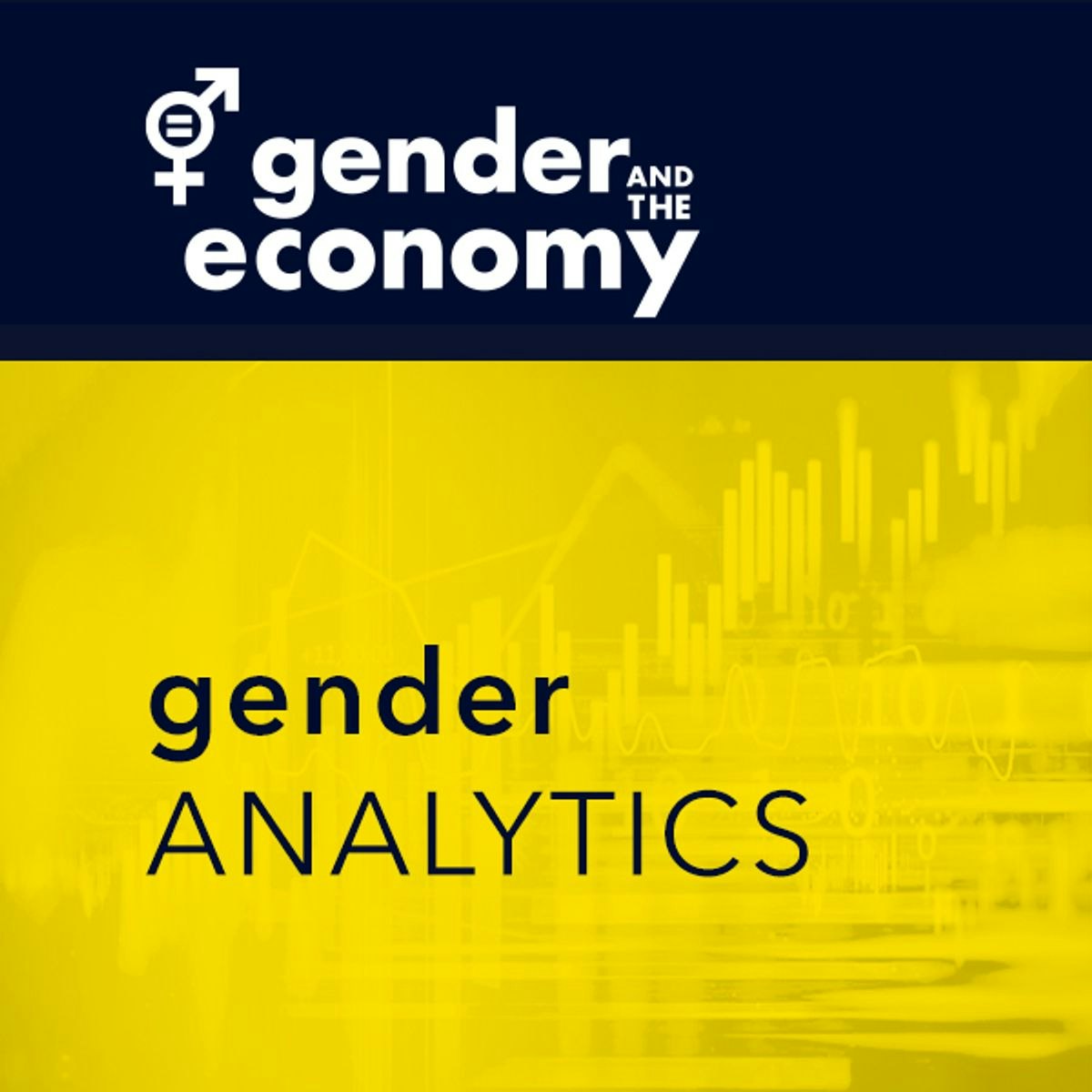Leadership Development Consultant
Navigating the Path to Becoming a Leadership Development Consultant
A Leadership Development Consultant is an expert who collaborates with organizations to cultivate effective leadership. These professionals work to identify and nurture leadership potential within a company, helping individuals refine their skills and guiding the organization toward improved productivity and engagement. The core of their work involves enhancing leadership capabilities to improve management effectiveness and achieve strategic goals. This career can be deeply rewarding, as consultants witness firsthand the transformation within individuals and organizations, helping to shape a culture of growth and excellence. It is a field that often involves creative problem-solving and strategic thinking to address complex leadership challenges at both individual and organizational levels.
For those intrigued by the prospect of empowering others and driving organizational change, the role of a Leadership Development Consultant offers a dynamic and impactful career. The opportunity to work with diverse leaders and organizations, coupled with the intellectual stimulation of designing and implementing development strategies, makes this a compelling choice for many. This field often involves guiding businesses through transformative periods and fostering adaptable cultures.
Introduction to Leadership Development Consulting
Embarking on a career as a Leadership Development Consultant means stepping into a role that is pivotal for organizational success. This profession is dedicated to enhancing the capabilities of leaders at all echelons of an organization, from emerging supervisors to seasoned executives. It's a field that blends psychology, business acumen, and educational expertise to foster growth and drive meaningful change.
Defining the Role and Its Importance
At its heart, leadership development consulting focuses on improving leadership effectiveness and driving organizational success. Consultants work with leaders to enhance their skills, make informed decisions, and cultivate a thriving company culture. This involves a collaborative partnership aimed at fostering growth and positive change within an organization. The ultimate goal is to help businesses shape their strategic future while fostering a culture of development.
Leadership Development Consultants are instrumental in helping organizations identify and develop internal talent. They support clients in managing hiring processes, selecting future staff, and training employees. This, in turn, can boost employee morale, improve retention rates, enhance productivity, and build stronger teams. By nurturing leadership skills, consultants empower individuals and organizations to navigate challenges and seize opportunities.
Impact on Organizational Success and Talent Management
The work of a Leadership Development Consultant directly influences an organization's ability to achieve its strategic objectives. Strong leadership is a vital driver of organizational success, particularly in times of change and uncertainty. Companies that invest in developing their leaders often see improved performance, innovation, and resilience. Effective leadership development helps to build a robust pipeline of talent, ensuring that the organization has capable individuals ready to step into critical roles.
These consultants play a crucial role in talent management by helping organizations assess leadership capabilities, identify skill gaps, and design programs to address these areas. This can involve executive coaching, team development, and succession planning. By focusing on leadership development, businesses can cultivate individuals who possess the skills to make informed decisions and guide the company towards sustainable growth.
Key Industries and Sectors
Leadership Development Consultants are sought after across a wide array of industries and sectors. Any organization that recognizes the value of strong leadership and is committed to investing in its people can benefit from their expertise. This includes large corporations, small and medium-sized enterprises, non-profit organizations, government agencies, and educational institutions.
The demand for leadership development is not confined to specific sectors, as the principles of effective leadership are universal. However, industries undergoing rapid change, facing complex challenges, or experiencing significant growth often have a particularly acute need for these services. Consultants may choose to specialize in a particular industry, such as healthcare, technology, or finance, allowing them to develop deep sector-specific knowledge.
Core Responsibilities of a Leadership Development Consultant
The daily activities of a Leadership Development Consultant are diverse and center on empowering leaders and organizations to reach their full potential. Their responsibilities span from strategic design to hands-on coaching and rigorous evaluation, all aimed at fostering effective leadership.
Designing Tailored Leadership Training Programs
A significant part of a consultant's role involves designing and implementing customized leadership development programs. This process begins with a thorough assessment of an organization's specific needs, culture, and leadership challenges. Consultants then develop targeted interventions, which might include workshops, seminars, and training sessions tailored to different leadership levels, from emerging leaders to senior executives.
These programs are designed to be engaging and interactive, ensuring participants gain practical skills and insights they can immediately apply in their roles. The curriculum often covers a wide range of topics, such as communication, strategic thinking, change management, emotional intelligence, and team building. The goal is to equip leaders with the knowledge and strategies they need to effectively engage their teams and drive business results.
For those interested in developing these crucial program design skills, online courses can provide a strong foundation.
These courses offer valuable insights into creating impactful learning experiences and understanding adult learning principles.
Understanding how to motivate individuals and teams is also a key component of designing effective leadership programs.
Coaching Executives and Managers
One-on-one coaching and mentoring are critical functions of a Leadership Development Consultant. They work closely with executives and mid-level managers to help them navigate complex organizational challenges, enhance their decision-making abilities, and improve their interpersonal and communication skills. This personalized guidance supports leaders in developing their strengths and addressing areas for growth.
Executive coaching often involves helping new leaders build pivotal relationships for success, develop new leadership skills, and resolve conflicts within their teams. The consultant acts as a trusted advisor, offering feedback and support to help leaders excel in their roles and drive positive change within their organizations. This process requires strong interpersonal skills and the ability to build trust and credibility quickly.
Effective coaching skills are essential, and there are many resources available to develop them.
These courses focus on practical coaching techniques and building trust with those you are guiding.
Understanding personality types can further enhance a consultant's coaching effectiveness.
Assessing Organizational Leadership Gaps
A key responsibility is to analyze organizational needs by assessing leadership performance, organizational culture, and team dynamics. This involves identifying strengths, weaknesses, and opportunities related to leadership within the organization. Consultants use various diagnostic tools, surveys, interviews, and observations to gather data and provide an objective assessment of the current state of leadership.
This assessment phase is crucial for developing an effective strategy to enhance leadership capabilities and align them with organizational objectives. It helps to pinpoint specific areas where development is most needed and ensures that interventions are targeted and relevant. The ability to analyze organizational dynamics and provide insightful recommendations is a hallmark of a skilled consultant.
Evaluating Program Effectiveness
Finally, Leadership Development Consultants are responsible for evaluating the effectiveness of the programs they implement. This involves using various assessment tools and metrics to measure the impact of leadership development initiatives on organizational performance, employee engagement, and behavioral change. They analyze feedback, track progress, and prepare comprehensive reports to demonstrate the return on investment of their interventions.
This evaluation process is vital for continuous improvement, allowing consultants to refine their programs and ensure they remain relevant and effective. It also provides valuable data to clients, showcasing the tangible benefits of investing in leadership development.
Formal Education Pathways
A solid educational foundation is typically the first step towards a career as a Leadership Development Consultant. While specific requirements can vary, certain academic paths are more common and provide the necessary knowledge and skills.
Relevant Undergraduate Degrees
A bachelor's degree is often considered the minimum educational requirement. Degrees in fields such as business administration, management, psychology, human resources, or organizational development are particularly relevant. These programs provide a broad understanding of business principles, human behavior, and organizational dynamics, which are crucial for this career. A business management degree, for instance, can help hone business acumen and teach valuable skills in communication, project management, and budgeting.
Graduate Programs and Specializations
Advancing your education with a master's degree, such as an MBA or a master's in organizational psychology, industrial-organizational psychology, or leadership development, can be highly beneficial. An advanced degree can open doors to higher-paying and more senior consulting positions. These programs offer more specialized knowledge in areas like change management, organizational theory, adult learning principles, and research methodologies. Some individuals may even pursue a Ph.D. if they are interested in research or a more academic path within the field.
These books delve into the complexities of organizational behavior and industrial psychology, offering foundational knowledge for aspiring consultants.
Accredited Certifications
In addition to formal degrees, various certifications can enhance a consultant's credibility and expertise. Certifications in areas like executive coaching, change management, or specific assessment tools (e.g., Myers-Briggs Type Indicator, DiSC) are common. Professional organizations such as the International Coaching Federation (ICF) or the Association for Talent Development (ATD) offer reputable certification programs. These credentials can validate your knowledge and commitment to the field.
Research Opportunities for Advanced Candidates
For those pursuing doctoral studies, research opportunities abound in leadership development. Topics might include the effectiveness of different leadership styles, the impact of coaching on executive performance, cross-cultural leadership challenges, or the role of emotional intelligence in leadership. Such research contributes to the broader field and can establish a consultant as a thought leader.
Online Learning and Skill Development
In today's flexible learning environment, online courses and digital platforms offer accessible and effective ways to acquire the essential competencies needed for a career as a Leadership Development Consultant. This pathway is particularly valuable for career pivoters or those looking to supplement formal education.
Essential Competencies Through Digital Platforms
A wide range of skills crucial for leadership development consulting can be honed through online learning. These include strategic thinking, communication, problem-solving, analytical skills, and change management. Digital platforms like OpenCourser provide access to courses covering these areas, often taught by industry experts and renowned academic institutions. Learners can find courses focusing on motivating teams, developing a growth mindset, understanding organizational behavior, and mastering coaching techniques.
OpenCourser provides a vast catalog of online courses that can help aspiring consultants build a strong foundation in leadership principles and practices. These courses cover diverse aspects of leadership, from team motivation to personal development.
Balancing Theory with Practical Application
While theoretical knowledge is important, practical application is key to becoming an effective consultant. Many online courses incorporate case studies, simulations, and practical exercises to help learners apply concepts to real-world scenarios. Look for programs that encourage active participation and provide opportunities to develop actionable plans or strategies. This hands-on approach ensures that the learning is not just academic but translates into tangible skills.
Some courses even guide students in creating personal onboarding plans or leadership development frameworks, directly bridging theory and practice.
These courses emphasize the practical application of leadership theories, helping learners develop actionable skills.
Portfolio-Building Strategies for Independent Learners
For those pursuing leadership development consulting independently, building a strong portfolio is essential to showcase expertise and attract clients. Online learning can contribute to this by providing projects that can be adapted for a portfolio. Consider volunteering for projects within your current organization or for non-profits to gain practical experience and demonstrable results. You can also offer freelance services on a smaller scale to build case studies. Documenting your process, the interventions you designed, and the outcomes achieved will create compelling portfolio pieces. Your OpenCourser profile can also be a place to highlight completed courses and projects.
Creating tangible outputs from your learning, such as leadership development plans or case study analyses, can be powerful additions to a professional portfolio.
Integration with Formal Degree Programs
Online courses can effectively supplement formal degree programs. Students can use them to delve deeper into specific topics of interest, gain additional skills not covered extensively in their primary curriculum, or earn certifications that add value to their qualifications. For example, a business student might take specialized online courses in executive coaching or diversity and inclusion to round out their profile. This integrated approach can make a graduate more competitive in the job market.
For those exploring educational pathways, OpenCourser offers a Business category page with a wide variety of relevant courses.
Career Progression for Leadership Development Consultants
The career path for a Leadership Development Consultant can be varied and rewarding, offering opportunities for growth and specialization. Progression often depends on experience, education, demonstrated impact, and networking.
Entry-Level and Early Career Roles
Many Leadership Development Consultants begin their careers in related fields. Entry-level roles such as HR generalist, training coordinator, or junior consultant in a larger firm can provide foundational experience. These positions offer exposure to organizational dynamics, training design and delivery, and employee relations. Working in these roles helps build an understanding of common workplace challenges and the importance of effective leadership.
Individuals in these early stages can benefit from courses focusing on foundational leadership and team development skills.
Mid-Career Transitions and Consulting Firms
With a few years of experience, professionals may transition into dedicated leadership development roles or join specialized consulting firms. At this stage, responsibilities often include managing larger projects, working with more senior leaders, and contributing to business development. Mid-level consultants typically have a stronger portfolio of successful interventions and a growing professional network. They may start to specialize in areas like executive coaching, organizational change, or a particular industry.
Salaries at this stage can increase significantly, with mid-level OD consultants potentially earning between $70,000 and $100,000 annually, though this can vary by location and firm. Furthering education, such as obtaining an MBA or a specialized master's degree, can facilitate this transition and enhance earning potential.
These books provide advanced insights into leadership challenges and talent development, suitable for mid-career professionals looking to deepen their expertise.
Executive-Level Opportunities
Experienced Leadership Development Consultants can progress to executive-level positions within organizations, such as Chief Learning Officer, Head of Talent Development, or Vice President of Organizational Development. In these roles, they are responsible for setting the strategic direction for leadership and talent development across the entire organization. They often manage teams of L&D professionals and work closely with the executive leadership team to align development initiatives with business goals.
These senior roles require extensive experience, a proven track record of impact, and strong leadership skills. Compensation at this level can be substantial, reflecting the strategic importance of the role.
Freelance and Entrepreneurial Pathways
Many experienced Leadership Development Consultants choose to establish their own freelance practice or boutique consulting firm. This path offers autonomy, flexibility, and the opportunity to build a business based on their unique expertise and approach. Successful freelance consultants are adept at marketing their services, building client relationships, and managing the operational aspects of their business. Online platforms can facilitate finding freelance opportunities.
While offering significant freedom, this path also comes with the challenges of inconsistent income and the need for continuous business development. However, for those with a strong network and a clear niche, it can be a highly fulfilling and lucrative career.
For those considering an entrepreneurial path, understanding how to build and energize teams is crucial.
According to ZipRecruiter, as of May 2025, the average annual pay for a Leadership Development Consultant in the United States is approximately $65,180. Salaries can range significantly, from around $28,000 to $121,000, depending on factors like skill level, location, and years of experience. Some sources indicate an average hourly pay of around $49.72. Payscale reported an average salary for Organizational Development Consultants at $105,297 in 2025. It's worth noting that these figures can vary, and continuous learning and specialization can positively impact earning potential.
Tools and Methodologies
Modern Leadership Development Consultants employ a variety of sophisticated tools and methodologies to diagnose issues, deliver interventions, and measure impact. These approaches are grounded in behavioral science and tailored to the unique needs of each client organization.
Assessment and Feedback Systems
360-degree feedback systems are a common tool used to gather perceptions of a leader's behavior and performance from a variety of sources, including supervisors, peers, direct reports, and sometimes even clients. This multi-rater feedback provides a comprehensive view of a leader's strengths and development areas. Consultants also utilize various psychometric assessments and personality inventories to help leaders gain self-awareness and understand their preferences and styles. These tools offer data-driven insights that inform coaching and development plans.Leadership Competency Frameworks
Leadership competency frameworks outline the specific skills, knowledge, and behaviors required for effective leadership within a particular organization or role. Consultants often work with organizations to develop or refine these frameworks. These frameworks then serve as a basis for assessing current leadership capabilities, identifying gaps, and designing targeted development programs. They provide a clear roadmap for what successful leadership looks like and how it can be developed.
Examples of common leadership competencies include strategic thinking, communication, emotional intelligence, decision-making, and team leadership.
These books offer deep dives into various leadership competencies and frameworks, which are essential for any consultant's toolkit.
Digital Collaboration Platforms
In an increasingly globalized and remote work environment, digital collaboration platforms are essential for delivering leadership development. Consultants use these tools for virtual coaching sessions, online workshops, team-based learning activities, and sharing resources. Platforms that support video conferencing, document sharing, and interactive whiteboarding facilitate engagement and learning for geographically dispersed teams. The ability to leverage these technologies effectively is a key skill for contemporary consultants.
Data Analytics for Measuring Change
Data analytics plays an increasingly important role in measuring the impact of leadership development initiatives. Consultants use data to track changes in leadership behavior, team performance, employee engagement, and other key metrics. This involves collecting pre- and post-program data, analyzing trends, and correlating development activities with business outcomes. Demonstrating a tangible return on investment (ROI) through data is crucial for showcasing the value of leadership development.
Industry Trends Impacting Leadership Development Consultants
The field of leadership development is constantly evolving, shaped by technological advancements, shifting workforce demographics, and global economic changes. Staying abreast of these trends is crucial for consultants to remain effective and relevant.
Rise of AI-Driven Leadership Assessment Tools
Artificial intelligence (AI) is increasingly being integrated into leadership development, particularly in assessment and coaching. AI-driven tools can analyze vast amounts of data to provide insights into leadership potential, identify skill gaps, and even offer personalized development recommendations. While AI can augment human efforts by providing data-backed insights, the human element of coaching and relationship-building remains critical. Consultants will need to understand how to leverage these tools while maintaining a human-centric approach.
Global Demand for Cross-Cultural Leadership Expertise
As organizations become more globalized, there is a growing demand for leaders who can effectively manage diverse, cross-cultural teams. This requires competencies such as cultural intelligence, adaptability, and the ability to communicate and collaborate across different cultural contexts. Leadership Development Consultants with expertise in cross-cultural leadership are highly sought after to help organizations build these capabilities.
Sustainability and ESG Integration
There is a growing expectation for businesses to integrate Environmental, Social, and Governance (ESG) principles into their strategies and operations. This, in turn, is influencing leadership development, with a greater emphasis on ethical leadership, corporate social responsibility, and sustainable business practices. Consultants are increasingly being asked to help develop leaders who can navigate these complex issues and drive sustainable outcomes.
Learning about sustainability and its impact on leadership is becoming increasingly important. OpenCourser has resources available through its Sustainability category page.
Post-Pandemic Hybrid Work Challenges
The shift towards hybrid and remote work models, accelerated by the pandemic, presents new challenges and opportunities for leadership. Leaders need to be adept at managing distributed teams, fostering engagement and collaboration in virtual environments, and ensuring employee well-being. Leadership Development Consultants are helping organizations adapt their leadership styles and practices to thrive in this new era of work. This includes training leaders on how to use digital collaboration tools effectively and maintain team cohesion despite physical distances.
Ethical Considerations in Leadership Development
Leadership Development Consultants often navigate complex ethical dilemmas. Maintaining high ethical standards is paramount to building trust and ensuring the integrity of their work.
Confidentiality in Executive Coaching
Executive coaching relationships are built on trust and confidentiality. Leaders must feel safe to discuss sensitive issues, vulnerabilities, and organizational challenges without fear of disclosure. Consultants have an ethical obligation to maintain the confidentiality of information shared by their clients, except in rare circumstances where disclosure is legally required or necessary to prevent harm. Clear agreements about confidentiality should be established at the outset of any coaching engagement.
Bias Mitigation in Leadership Assessments
Leadership assessments, if not carefully selected and administered, can perpetuate biases related to gender, race, age, or other characteristics. Consultants must be vigilant in choosing assessment tools that are validated, fair, and culturally sensitive. They should also be aware of their own unconscious biases and take steps to mitigate their influence on the interpretation and application of assessment results. The goal is to ensure that development opportunities are equitable and based on merit.
Understanding and promoting inclusivity is key to ethical leadership development. This course helps leaders build skills for fostering inclusive environments.
These books explore the importance of inclusion and provide strategies for creating more equitable workplaces.
Balancing Organizational Goals with Individual Development
Leadership development initiatives should ideally align with both the strategic goals of the organization and the developmental needs of individual leaders. However, there can sometimes be tension between these two objectives. Consultants must navigate this balance ethically, ensuring that development programs serve the broader organizational strategy while also genuinely supporting the growth and well-being of the individuals involved. Transparency about the goals and expectations of development programs is crucial.
Handling Toxic Leadership Patterns
Identifying and addressing toxic leadership patterns is a challenging but critical ethical responsibility. Consultants may encounter situations where leaders exhibit behaviors that are detrimental to their teams and the organization. In such cases, consultants must decide how to address these issues constructively, which may involve providing direct feedback, coaching the leader to change their behavior, or, in some instances, advising senior management on appropriate interventions. This requires courage, tact, and a strong ethical compass.
Dealing with difficult workplace dynamics is a reality for many leaders and consultants.
Challenges Faced by Leadership Development Consultants
The path of a Leadership Development Consultant is not without its hurdles. Understanding these challenges can help aspiring and current consultants prepare and strategize effectively.
Resistance to Cultural Change
One of the most significant challenges is overcoming resistance to cultural change within organizations. Leadership development often involves shifting mindsets, behaviors, and established norms, which can be met with skepticism or outright opposition from individuals comfortable with the status quo. Consultants must be skilled in change management principles and possess strong communication and influencing skills to navigate this resistance and build buy-in for new initiatives.
Quantifying the ROI of Soft Skills Development
Demonstrating the tangible return on investment (ROI) of developing "soft skills" like communication, emotional intelligence, and teamwork can be difficult. Unlike technical skills, the impact of soft skills development is often less direct and harder to measure in purely financial terms. Consultants need to be adept at identifying relevant metrics, gathering data, and articulating the value proposition of their programs in ways that resonate with business leaders. This might involve linking development to improvements in employee engagement, retention, productivity, or innovation.
Adapting to Generational Differences
Workplaces today often comprise multiple generations, each with potentially different expectations, communication styles, and approaches to leadership. Consultants must be able to design and deliver programs that are relevant and engaging for a multigenerational workforce. This requires understanding the nuances of different generational cohorts and adapting content and delivery methods accordingly.
Maintaining Relevance Amid Technological Disruption
The rapid pace of technological change, including the rise of AI and automation, is transforming the nature of work and leadership. Consultants must continuously update their own skills and knowledge to stay ahead of these trends and provide relevant advice. This includes understanding how new technologies are impacting leadership roles and how development programs can prepare leaders for a future that is increasingly digital and data-driven.
Understanding the future of work is crucial for consultants to stay relevant.
For those looking to explore professional development further, OpenCourser's Professional Development category offers a wealth of resources.
Frequently Asked Questions (Career Focus)
Navigating the path to becoming a Leadership Development Consultant often brings up several common questions. Here are some frequently asked questions with a career focus.
Is an MBA required to enter this field?
While an MBA or a master's degree in a related field like organizational psychology or human resources can be highly beneficial and may open doors to more senior roles, it is not always a strict requirement to enter the field of leadership development consulting. Many successful consultants come from diverse educational backgrounds, and practical experience in leadership roles or human resources can also be a strong foundation. Relevant certifications in coaching or specific assessment tools can also enhance credibility. Ultimately, a combination of education, experience, and demonstrable skills is key.
Can teachers transition into leadership development consulting?
Yes, teachers can often successfully transition into leadership development consulting. Educators possess many transferable skills that are highly valuable in this field, such as curriculum design, facilitation, communication, and understanding learning processes. Experience in managing a classroom, motivating students, and adapting teaching methods to diverse learners can translate well to designing and delivering leadership training. Teachers considering this transition may want to supplement their experience with coursework or certifications in business, organizational development, or coaching to bridge any knowledge gaps.
Educators looking for resources can explore the Education category on OpenCourser.
How does this role differ from management consulting?
While both leadership development consulting and management consulting aim to improve organizational effectiveness, their primary focus areas differ. Management consultants typically address broader business problems related to strategy, operations, finance, or technology. Their recommendations might involve restructuring, process optimization, or market entry strategies. Leadership Development Consultants, on the other hand, focus specifically on enhancing the capabilities of leaders and leadership teams within an organization. Their work centers on training, coaching, talent assessment, and fostering a strong leadership culture to drive organizational goals. There can be overlap, as effective leadership is crucial for implementing any strategic change recommended by management consultants.
Aspiring consultants can compare these fields by exploring resources on Management.
What is the job market demand forecast?
The demand for professionals who can develop leadership talent remains robust. According to the U.S. Bureau of Labor Statistics (BLS), employment of management analysts, a category that includes organizational development consultants, is projected to grow 10 percent from 2022 to 2032, which is much faster than the average for all occupations. While this is a broader category, the underlying drivers – such as the need for organizations to improve efficiency and adapt to change – also fuel demand for leadership development expertise. Organizations continuously seek to enhance their operations and are turning to experts to help with strategic initiatives and decision-making, suggesting a positive outlook. The LinkedIn Workplace Learning Report also highlights that providing learning opportunities, including leadership training, is a top retention strategy for organizations.
Are there global opportunities for expatriates?
Yes, there are global opportunities for Leadership Development Consultants, particularly for those with expertise in cross-cultural leadership and experience working in diverse international environments. Multinational corporations often require consultants who can help develop leaders capable of managing global teams and navigating different business cultures. Additionally, some large consulting firms have international offices and projects that may offer expatriate assignments. Fluency in multiple languages and a deep understanding of global business trends can be significant assets for consultants seeking international roles.
How does compensation compare to adjacent HR roles?
Compensation for Leadership Development Consultants can be competitive and often compares favorably to many generalist HR roles, particularly for experienced consultants or those with specialized expertise. While entry-level salaries might be comparable to some HR positions, the earning potential for established consultants, especially those in private practice or senior roles in large firms, can be significantly higher. Factors influencing compensation include experience, education, certifications, the size and type of client organizations, and geographic location. Management consulting roles, particularly at top-tier firms, may offer higher starting salaries and faster progression, but the work-life balance can differ.
For those interested in salary benchmarks, some reports indicate management consultants exiting to industry positions receive pay increases. The average salary for a Leadership Development Consultant in the US was around $65,180 as of May 2025, according to ZipRecruiter, with a wide range. Other sources like Payscale have reported higher averages for Organizational Development Consultants.
Embarking on Your Journey
The path to becoming a Leadership Development Consultant is one of continuous learning, strategic skill-building, and a commitment to fostering growth in others. It requires a blend of formal education, practical experience, and the development of key competencies in areas like coaching, program design, and organizational assessment. For those drawn to empowering individuals and shaping effective organizations, it offers a dynamic and impactful career.
If you are considering this path, remember that the journey itself is a developmental process. Embrace opportunities for learning, whether through formal degree programs, specialized online courses, or hands-on experience. Building a strong network, seeking mentorship, and staying adaptable to industry trends will be invaluable. While the challenges can be significant, the reward of seeing leaders and organizations flourish through your guidance can be immensely satisfying. Ground yourself in ethical practice, be prepared to navigate complexity, and approach each engagement with a spirit of collaboration and a focus on delivering tangible value.





















